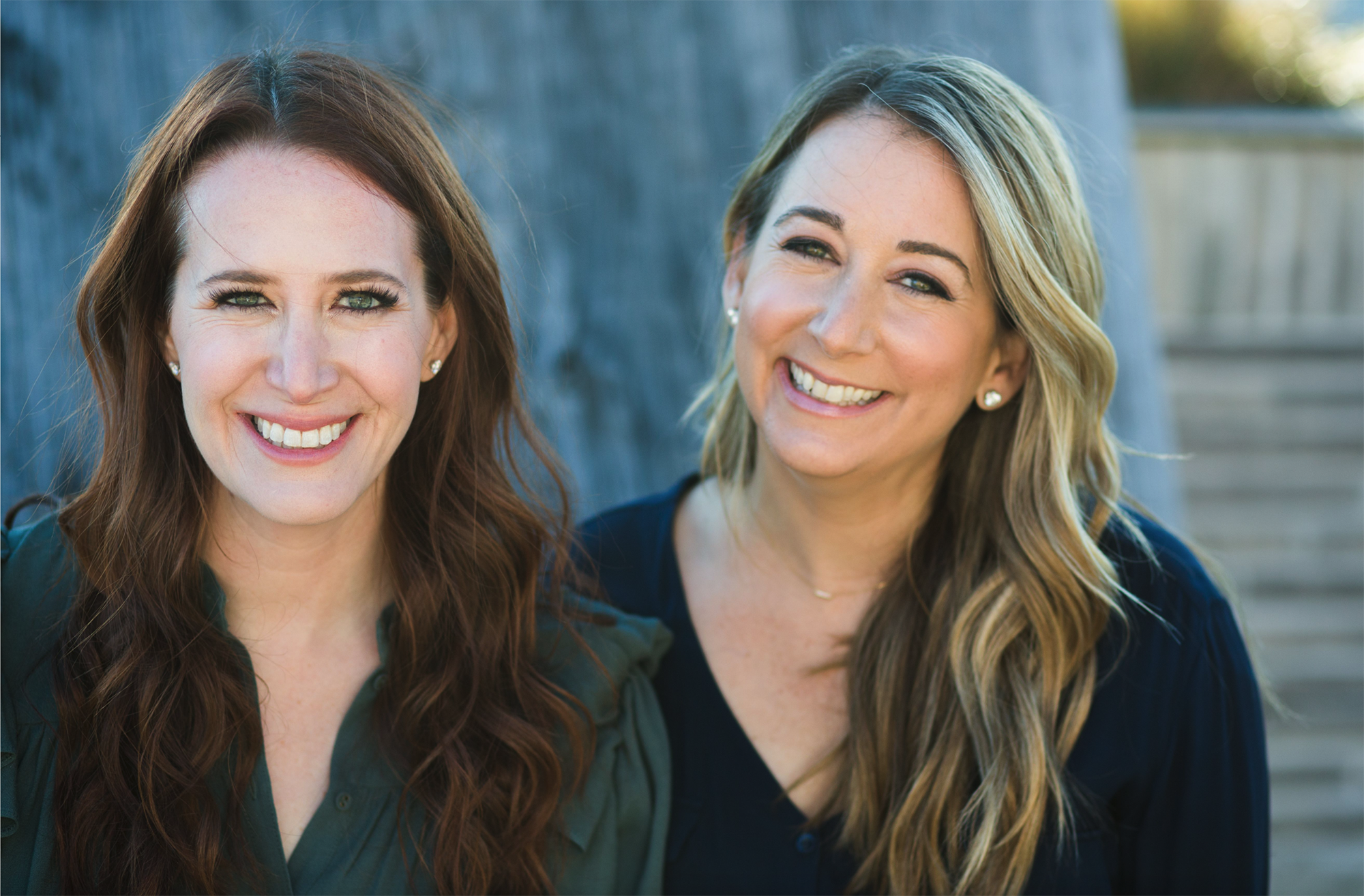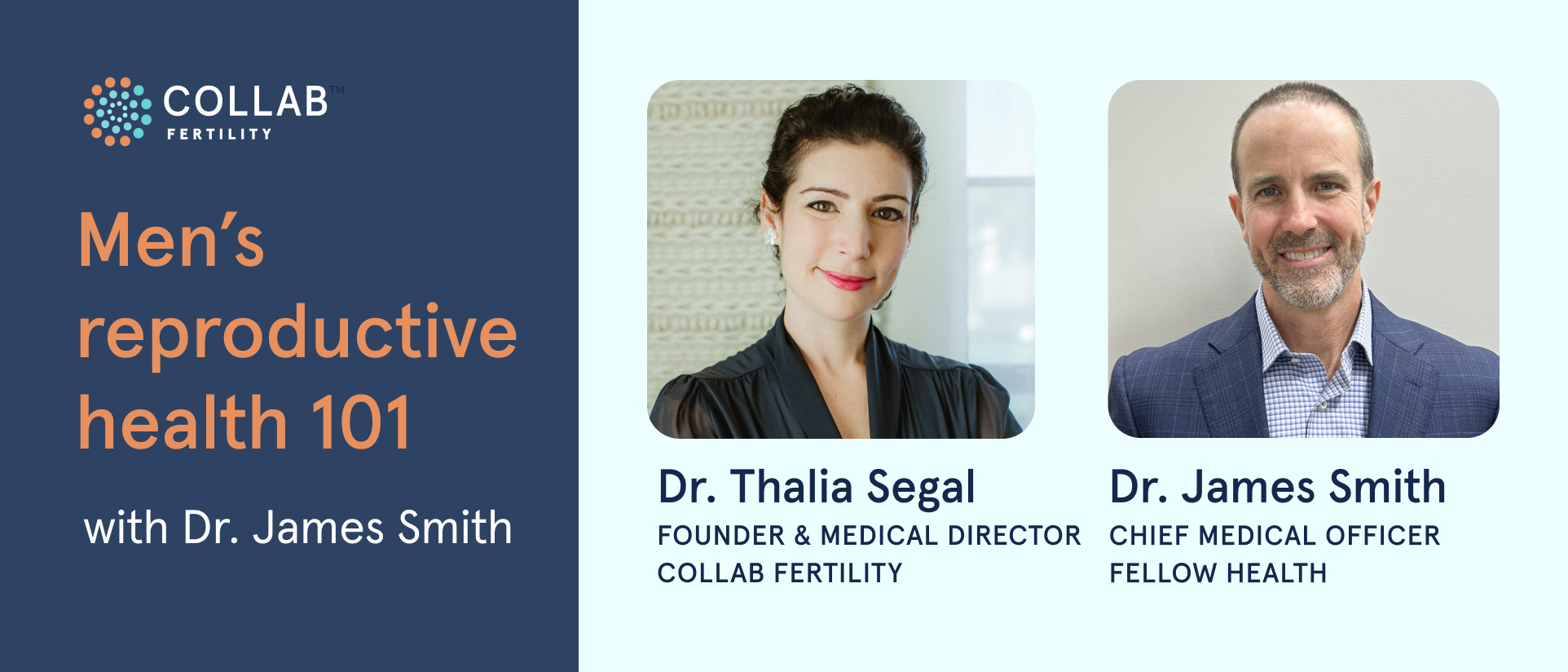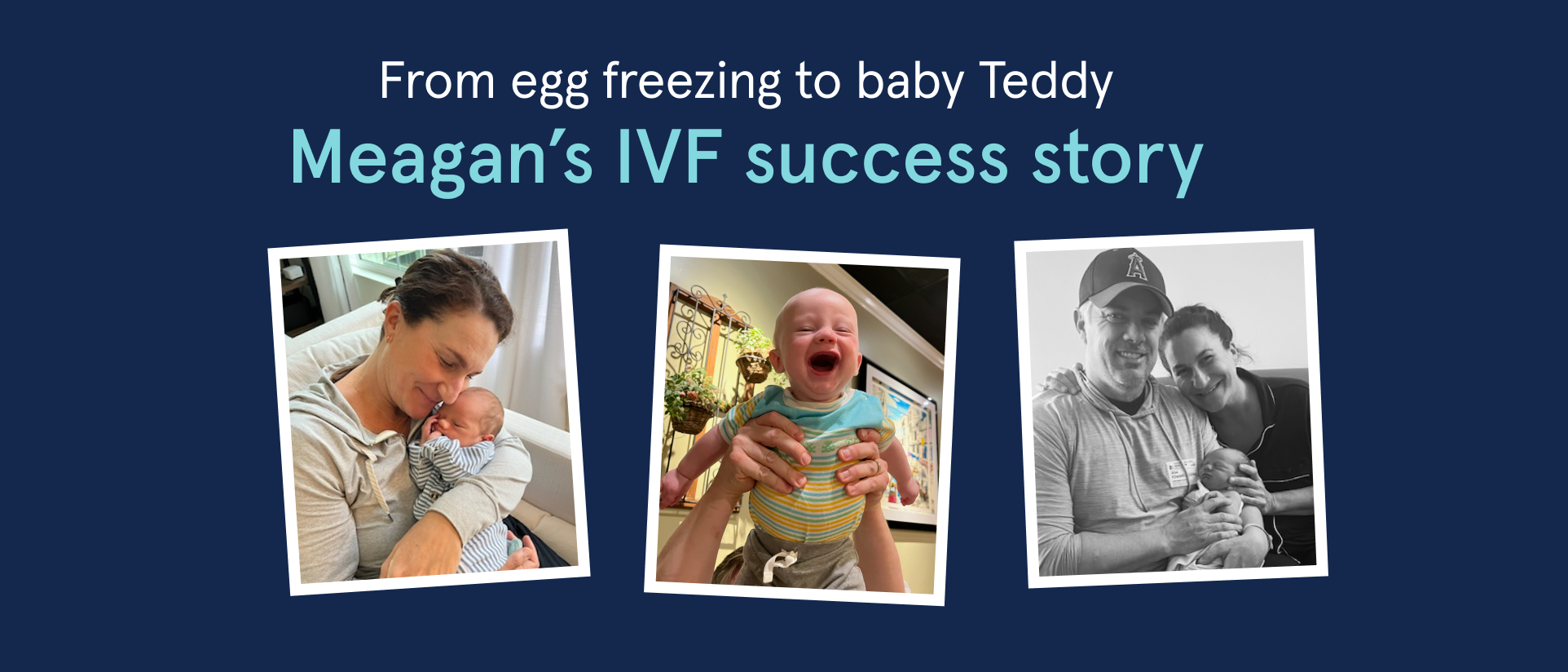
Making fertility preservation possible for women facing cancer
Collab partners with non-profit The Chick Mission to help women move quickly to freeze eggs before cancer treatment starts, and at no cost
When Tracy Weiss was diagnosed with cancer at just 30, none of her doctors talked to her about fertility preservation until her treatment plan was already underway. Her insurance even labeled egg freezing “elective.” That experience fuels her mission today as Executive Director of The Chick Mission, determined to ensure that other women do not face the same gap in care or feel they must give up their dream of having a family because of a cancer diagnosis.
Amanda Rice founded the Chick Mission to help young women battling cancer navigate preserving their fertility by providing educational tools, financial grants, and a community of like-minded patients and allies.

The Chick Mission combats the issue that many major insurance companies refuse to cover the cost of egg freezing as it is deemed “elective,” even for cancer patients whose treatment (radiation and chemo) may render them infertile. Egg freezing and fertility treatments cost women an average of $15,000 to $20,000, plus storage fees. Therefore, for many patients, the greatest hurdle to preserving fertility is cost, and that challenge arises at the very moment when there is little time to act. The Chick Mission’s Hope Grants cover the core costs of egg freezing and can be approved in as little as 48 hours, giving patients a crucial chance to protect their fertility before treatment begins.
Collab Fertility is proud to partner with The Chick Mission to ensure that patients facing cancer receive timely, compassionate fertility care along with the financial support they need during this vulnerable time.
In this Q&A for Breast Cancer Awareness Month, Weiss shares her story and offers guidance for patients navigating urgent decisions about their future families.
A cancer survivor’s inspiring story
Q: Can you tell us a little about your background and what inspired you to get involved with The Chick Mission?
Tracy: I’m a survivor myself. At 30, I was newly married and living in New York when I was diagnosed with adenocarcinoma that had grown through my cervix. I’d had symptoms for months, but it was dismissed — even called “hysterical” by a doctor.
Two months into planning surgery and treatment, someone finally asked if I wanted to freeze my eggs. I thought I could do it later since I was keeping my ovaries, but that’s not how it works. My insurance called it “elective,” so I put it on my credit card.
"Seven years later, I met The Chick Mission Founder, Amanda Rice, who was diagnosed with cancer three times before her 40th birthday. While she was grateful to be able to pay for her own egg freezing, she wondered what happened to those who don't have similar resources. She turned the pain and suffering caused by her medical journey into The Chick Mission."
Amanda’s story inspired me, and I knew I wanted to help the organization succeed. I proudly became the first employee in 2020.
Q: What gap did you see in fertility care for cancer patients that Chick Mission set out to fill?
Tracy: According to the American Cancer Society, only about half of oncologists even bring up fertility with their patients of reproductive age. Some assume patients can’t afford it or that there isn’t time. However, patients deserve the information to make an informed choice, not to have that choice taken away from them.
Chick Mission tackles the issue in three ways:
- HOPE Grant Program: Provides immediate, practical help so patients can preserve fertility in real time.
- Advocacy: Works state by state to mandate insurance coverage and increase healthcare access for fertility preservation when infertility is caused by cancer treatment.
- Education: Helps patients, providers, and the public understand fertility and the impact of cancer treatment.
Q: How has the mission evolved since you started the organization?
Tracy: We began as a grant-making organization, but quickly realized the bigger solution was policy change. Our long-term goal is to put ourselves out of business by making fertility preservation for women facing cancer universally covered by insurance.
We’ve also expanded geographically. We started in New York and now partner with about 80 fertility clinic locations in 11 states, so women in these locations have access to the Hope Grant:
*pending
Q: October is Breast Cancer Awareness Month. What is Chick Mission doing this month, and how do you plan to keep that momentum going after October?
Tracy: We help patients with all types of cancer, so in a way, every day is October. But this month we host events that combine community and advocacy — a happy hour in New York where patients can feel seen as people, not just patients, and our annual Chick Mission Gala.
We keep the conversation going year-round. For example, in September, we highlight gynecologic cancers. Breast Cancer Awareness Month helps spotlight onco-fertility issues and motivates people to advocate for themselves and get care early.
Does Chemotherapy Affect Fertility?
Q: For people newly diagnosed with breast cancer, what should they know about how chemotherapy can affect fertility?
Tracy: Chemotherapy is designed to kill fast-growing cells, which means it can also harm eggs. Some chemo regimens are more fertility-sparing than others, but the reality is that most women will have reduced fertility after treatment.
You’re born with all the eggs you’ll ever have. Age and genetics already reduce that supply over time, and chemo accelerates the loss. For breast cancer patients, if there’s time before starting treatment, it’s important to pursue egg freezing or other preservation options with a fertility clinic like Collab Fertility.
Q: Is there a particular window of time when fertility is most at risk due to treatment?
Tracy: Usually, you want to do fertility preservation before starting chemotherapy or long-term hormone therapy. Sometimes a mastectomy can happen first, and the egg-freezing cycle can be done before chemo starts, but the timeline is tight — often just about two weeks.
Can You Have Kids After Chemotherapy?
Q: How common is it for cancer survivors to go on to have children after treatment?
Tracy: It depends on many factors — the type of cancer, the treatment received, age, and whether radiation involved the pelvic area.
There are also personal and life-stage factors. Our average patient is 31. Many need time after treatment to recover physically and emotionally, to rebuild relationships, or to start dating again. Medicine can preserve your options, but the rest — life circumstances — can be more complicated.
What Is Fertility Preservation?
Q: How do you define fertility preservation for people facing cancer treatment, and why is it so important to discuss it early?
Tracy: Fertility preservation is usually the first step of an IVF cycle — stimulating the ovaries to produce eggs, then freezing eggs (or embryos, if you have a partner or want to use donor sperm).
For many patients, it’s the first real decision they get to make for themselves after a scary diagnosis. That can be empowering and hopeful. At The Chick Mission, we like to say,
“We’re betting on you living a long, healthy life — and we want you to have the chance to try for children later if you choose.”
How Much Does Fertility Preservation Cost?
Q: Fertility preservation can be expensive. What are the biggest financial barriers patients face when they are newly diagnosed with cancer?
Tracy: Cost is the biggest barrier. An egg-freezing cycle can cost $15,000–$20,000, plus medications. Most insurance plans don’t cover it for cancer patients, even though treatment is likely to damage fertility. And unlike people struggling with infertility who can plan and save, cancer patients often have just 10–14 days before they need to start treatment. There’s no time to fundraise or figure it out.
Grants for Cancer Survivors
Q: Chick Mission is known for helping people overcome financial barriers. Can you share more about your grant program and who it’s designed to help?
Tracy: Our HOPE Grant Program is for patients aged 18–40 whose treatment will affect their reproductive function and who meet income criteria.
We’ve negotiated packages with our partner clinics that cover everything — consultations, monitoring, retrieval, and at least a year of storage — so patients don’t have to navigate a maze of bills. Grants do not cover medications, but other organizations like Livestrong and The Heartbeat Program help with that. Fertility clinics will connect patients with these resources.
Our grant process is streamlined: the patient’s fertility clinic confirms eligibility and submits the application to us on their behalf. Patients hear back within 48 hours so they can quickly begin their fertility preservation before starting cancer treatment.
Fertility Preservation Clinics in the Bay Area
Q: How does partnering with clinics like Collab Fertility help patients in the Bay Area access timely fertility preservation care?
Tracy: We partner only with clinics that combine excellent science with empathy for this patient population.
Collab Fertility is a great example. Their team prioritizes urgent cases, works directly with oncologists to ensure safety, and handles billing in a way that relieves stress for patients. They provide both a scientifically sound and emotionally safe environment — exactly what patients need during such a stressful time.
Cancer is already overwhelming. Fertility preservation should not be another hurdle. We exist to give patients information, options, and hope so they can focus on saving their lives without losing the chance to build the families they want in the future.
Fertility preservation after a cancer diagnosis
As Tracy Weiss so eloquently points out, a cancer diagnosis shouldn’t take away your chance to have a family. Collab Fertility is proud to partner with The Chick Mission to remove financial barriers, so patients can act quickly to protect their future family-building dreams.
If you’ve been diagnosed with cancer and you want to have kids someday, contact us right away to explore your options. Eligible patients can receive a Hope Grant that covers the full cost of an egg-freezing cycle at Collab and can also receive medications at no cost through Livestrong and the Heart Beat Program. We’ll guide you through every step — from securing financial support to completing your egg-freezing cycle.
And if you’re in the Bay Area, join The Chick Mission for Bubbles & Bad Behavior in San Francisco on November 6, a bold night of fun that raises critical funds for fertility preservation grants and advocacy. We’ll see you there!
________________________
Proudly Supporting Local Communities
Collab Fertility is honored to serve families in the East Bay like Danville, Alamo, Orinda, Lafayette, Moraga, Piedmont, and Walnut Creek, as well as many other communities in the Bay Area and beyond, including Oakland, San Ramon, Concord, Pleasant Hill, Santa Rosa, Novato, Napa, Sonoma, and more.
Latest Articles

Men’s reproductive health 101: Dr. James Smith answers common questions about male fertility


